The Winter of Our Discontent
I have always thought of myself as a refugee from the clutter and decay of population centers. We live thirty-five miles from the nearest store; thirty-five barren miles is what I was searching for when I moved here. It is something of an animal oasis, a utopian community for people, dogs, and birds. But this COVID winter has threatened our tranquility.
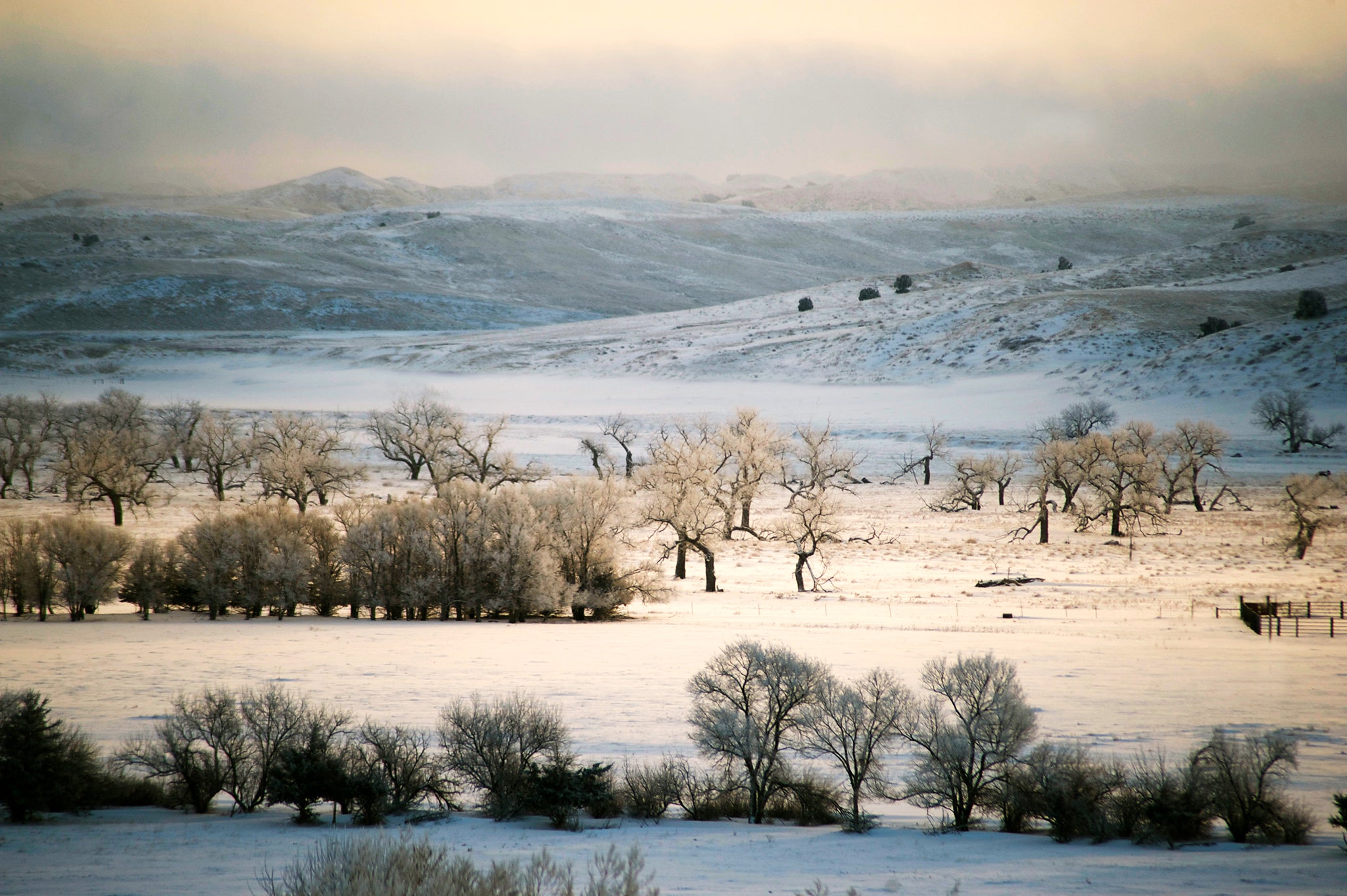
For years my routine has been to wake up at 4:30 or 5:00, coffee up, and take the dogs for a walk before I begin my morning chores. Currently, there are four dogs that greet me as I walk past the bird feeder smothered by a hundred goldfinches, under the giant cottonwood trees, past the homing pigeon coop, and approach the kennels and the falcon mews.
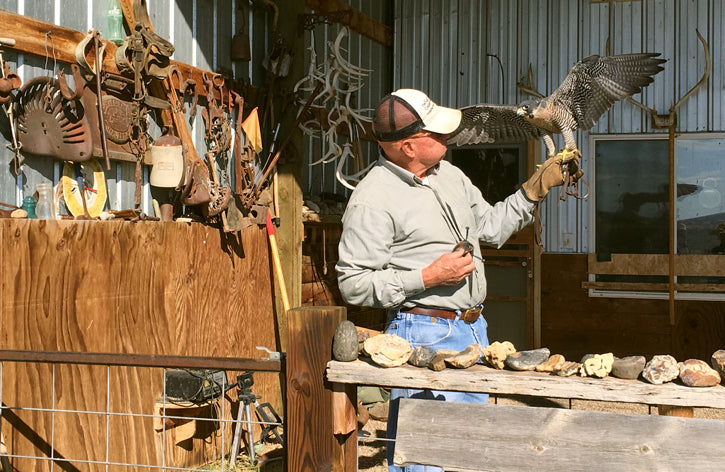
I tie the falcons out in their weathering yard where they stay until I’m back from our walk and ready to exercise them. The dogs leap and bark their heads off until I turn them loose and they chase each other around the grassland that is cordoned off to form a large front yard.
When I turn toward the driveway all four dogs freeze and watch me as if I am a rooster pheasant that has walked into their territory. They are intent and I make them wait. When I tell them “all right,” they explode, up the driveway and under those big old cottonwoods.
The dogs and I walk up the road until we’ve gone a couple miles. They, of course, cover much more ground than I do. They search the desolate snow drifts for a whiff of a quail, a grouse, a pheasant. They long to hear the sound of a shotgun.
For the last forty years I have spent at least part of every winter in New Mexico at the home of probably my best friend. His big, beautiful, and desolate ranch is one of my favorite places on Earth. He and his family give me a place to sleep and enough peace and quiet to do some writing, but the main draw—beside the fact that New Mexican winters are much warmer than those on the Northern Plains— is that my friend’s ranch is full of birds for the dogs to point and the falcons to chase. For forty years I haven’t had to take the dogs for winter walks. For forty years the dogs, falcons, and I have gotten our exercise by doing what they live for.
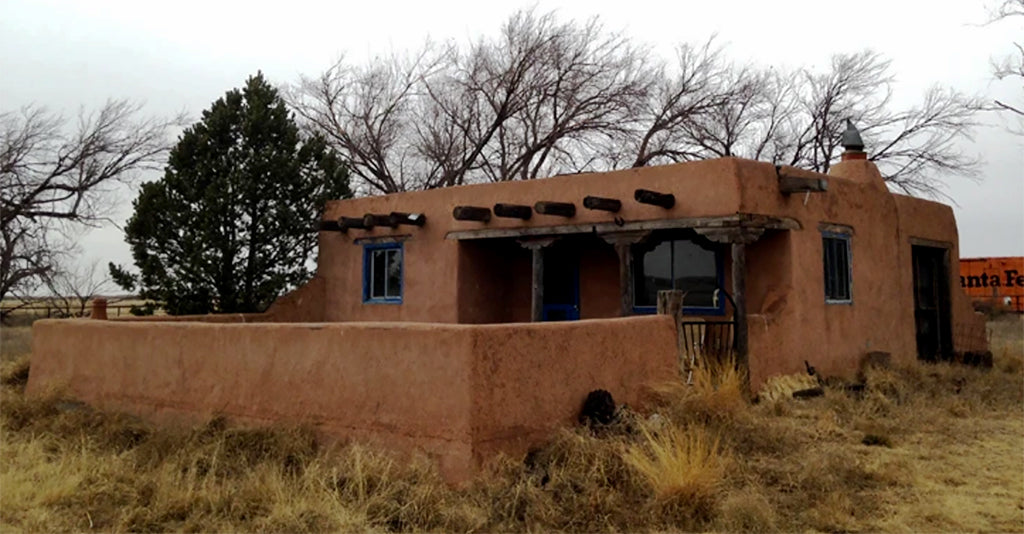
But this year there could be no soul-saving quail hunt in New Mexico. This year, I’ve been reminded that we are getting older, a fact that put me and my best friend in the population of Americans at high risk during the pandemic. Who knows what bug I could catch driving for twenty hours down the center line of the country? Who knows what dangers I could bring to New Mexico with me?
So, I’ve been imprisoned here on this cold and lonely ranch. Mostly it’s one gray day after the next. Even the dogs have begun to feel the strain. Lately, Calvin and Shiner, a pair of English Setters who are big buddies when they hunt together, stop halfway up the driveway and go stiff legged as they circle each other, growling and threatening to mix it up.
It’s enough to make a guy consider murder—if there was only someone to murder.

Earlier this fall, on one of those morning walks with the dogs, I happened to look up at the huge, old snag in one of our biggest cottonwoods. My eyes were drawn to a hole in an enormous, rotting branch in the ancient tree. Over the years, I have seen starlings, raccoons, a couple wood ducks, and one wayward fox squirrel emerge from that hole. But that morning at the beginning of this insufferable winter, I saw a ball of silver brown fluff. It was really too far away to make a positive ID but I was pretty sure that it was the tiny Eastern screech owl that I’d been hearing in the evenings. SIBLEY’S GUIDE TO BIRDS puts the weight of an Eastern screech at just six ounces, but when I’d spotted him, he filled that gaping hole, perfectly camouflaged against the dead wood so that you’d never know there was an opening. I named him Homer Hoot.

Over the course of walking the dogs this fall and winter, I’ve seen Homer come and go. He’ll be in his hole for day or two and then he’ll disappear for long stretches of time. I don’t usually think much about Homer’s absence because he always returns. I go about my morning tasks whether he is there to supervise or not. I put the dogs back in their kennels, feed them, and put the falcons out on their blocks.
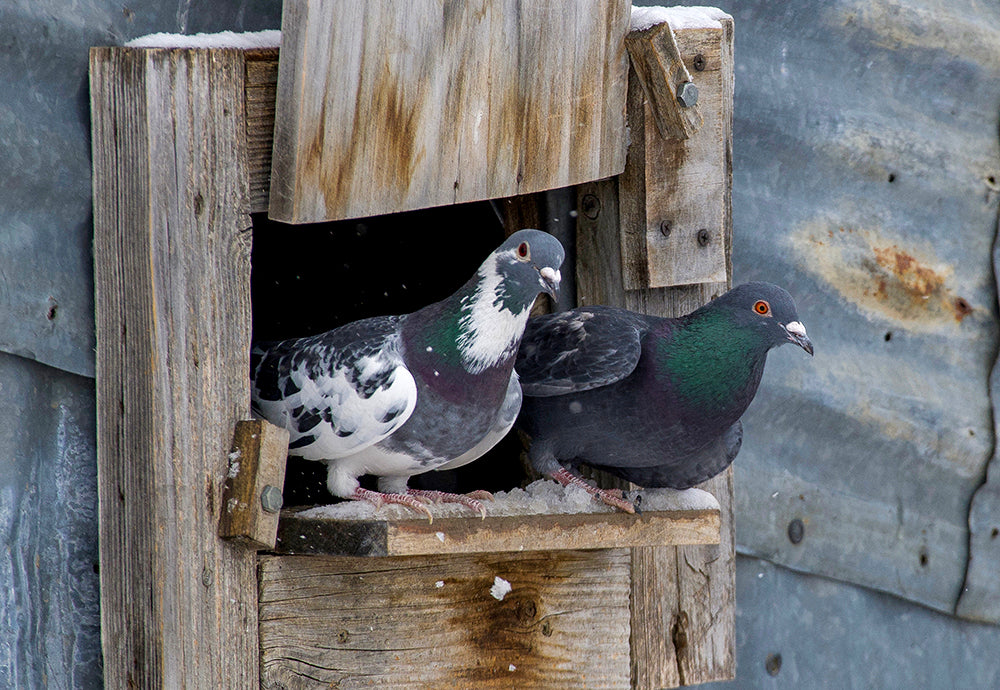
My last chore of the morning is to feed the pigeons and let them out to fly. The pigeon loft has an 8x12 hole cut out that gives the birds the freedom to come and go from the loft, and there are one-way bobbers that can swing down over the hole to lock the pigeons inside. Usually, when I open the loft door, there is mad flutter of wings as twenty pigeons shift to prime perches for getting out first.
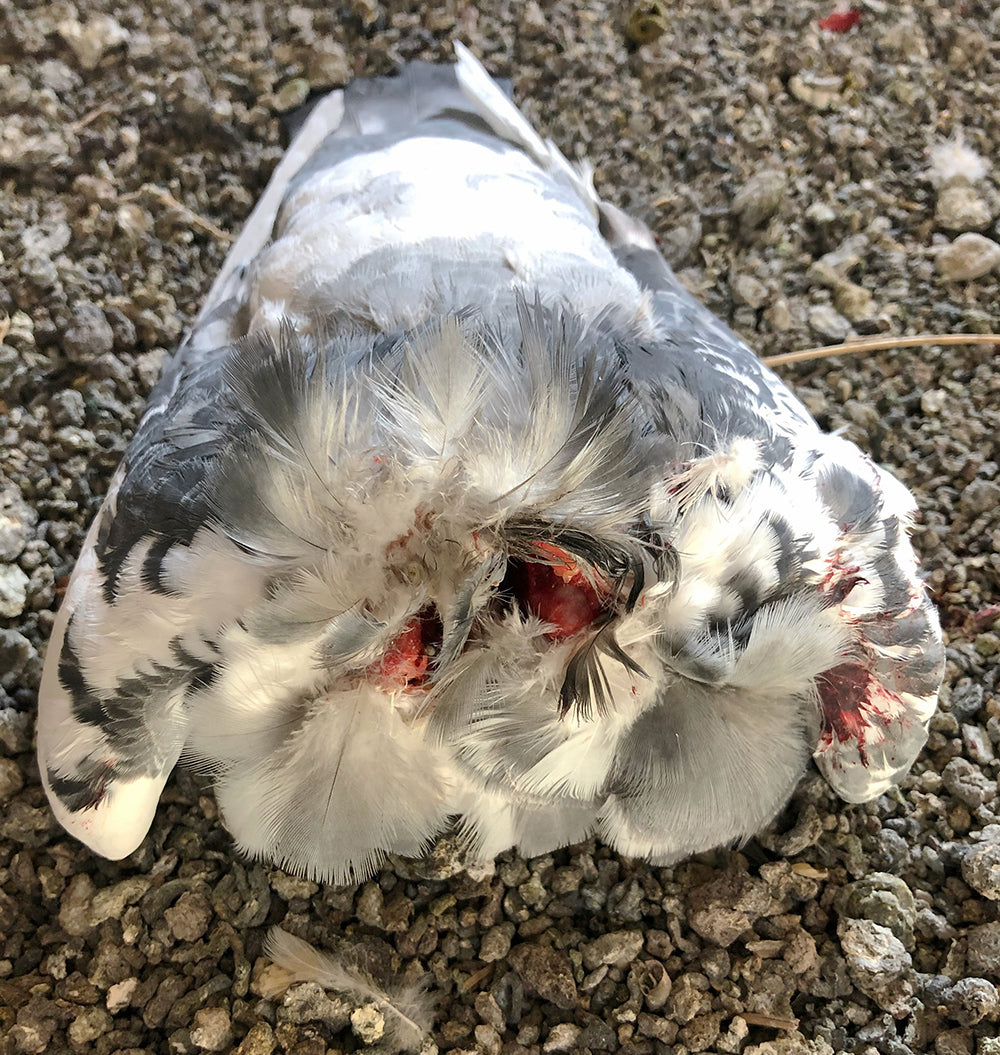
But this morning all the pigeons sat perfectly still. No pigeon moved. I got a creepy feeling and looked down at the floor. A big, black-and-white male pigeon was on the floor. He lay motionless. His head had been severed and was nowhere to be found.

It was like a horror movie. As I slowly raised my eyes, I expected organ music. But there was no monster, just horrified pigeons. Suddenly a tiny, silver-brown stirring caught my attention, and two very serious, large yellow eyes materialized from an odd puff of feathers on a pigeon perch. It was Homer—guilty as sin.

“He had found someone to murder,” I told the dogs. He must have snuck into the loft through the bobbers and found himself trapped. When Homer killed the pigeon, he’d been punching over his weight. His victim weighed twice as much as he did, but the frustration of this long winter must have given him the strength of a superhero.
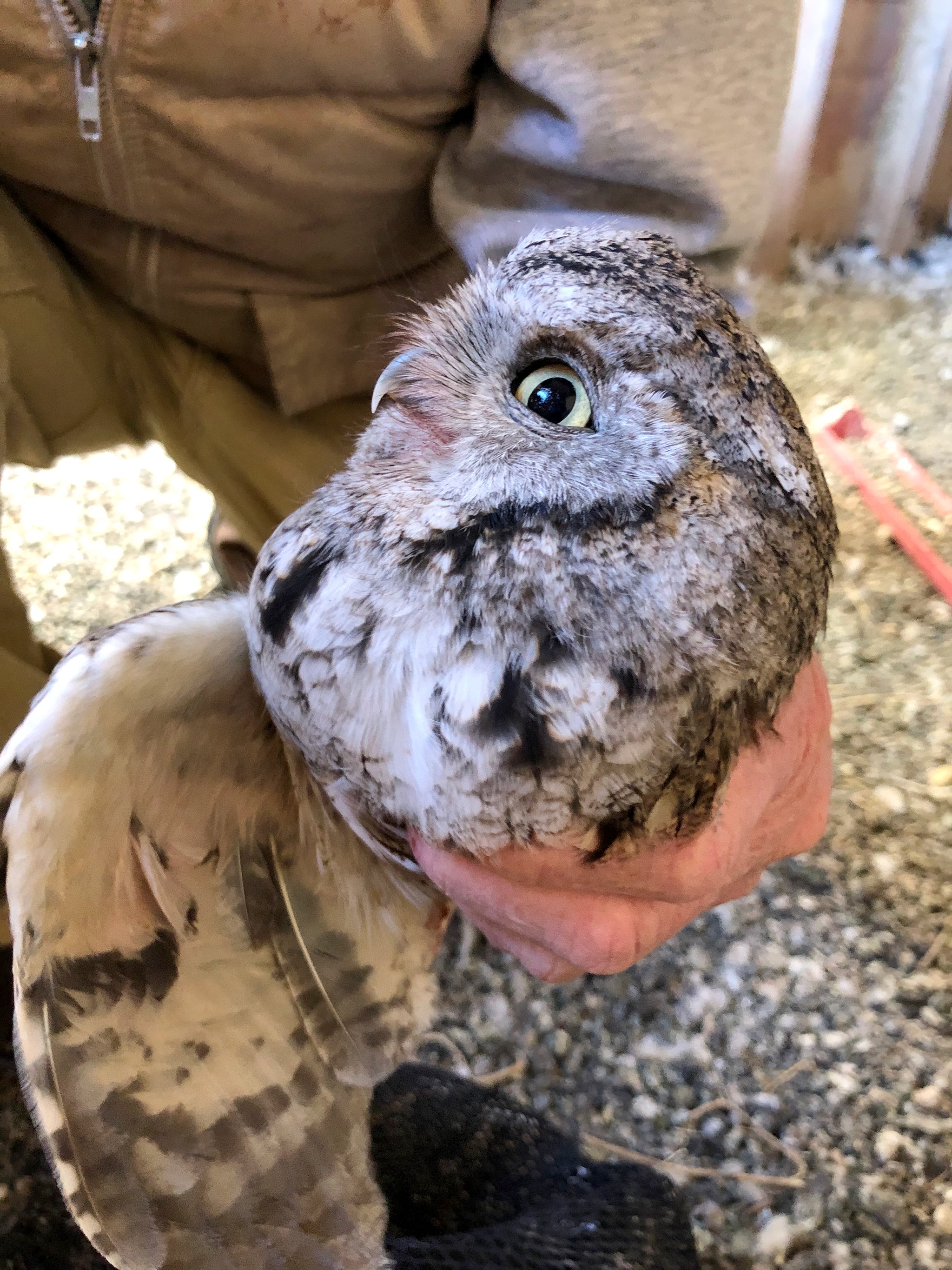
When I caught him with a net and lifted him out with my hand, he bit me and footed me with tiny talons that barely drew blood. Before I let him go, I held him for a few extra seconds and felt his heart beating. It seemed as big as an eagle’s.
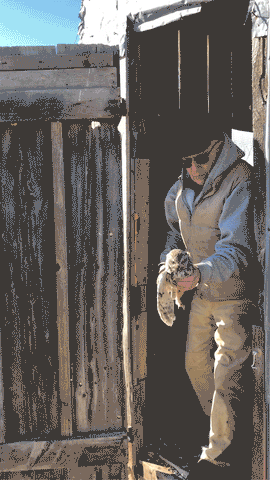


That was beautiful—-you felt the way most of us did, only you can put it into words.
Thanks—-
Your prose always makes me feel so connected to nature. I am glad you are staying safe, Dan. Hopefully you have or will get vaccine soon and regain your freedom.
Nice photos.
Beautiful story, Dan. I hope you are well.
Homer is as cranky and ornery as the rest of us COVID-weary humans are! The open space you are privileged to live in sounds like a dream! Enjoy its blessings!
I haven’t been able to travel “out west” for the last decade. I long to see the big skies and vast empty landscapes. Hopefully soon….
Melissa Grieves
Little Silver, NJ